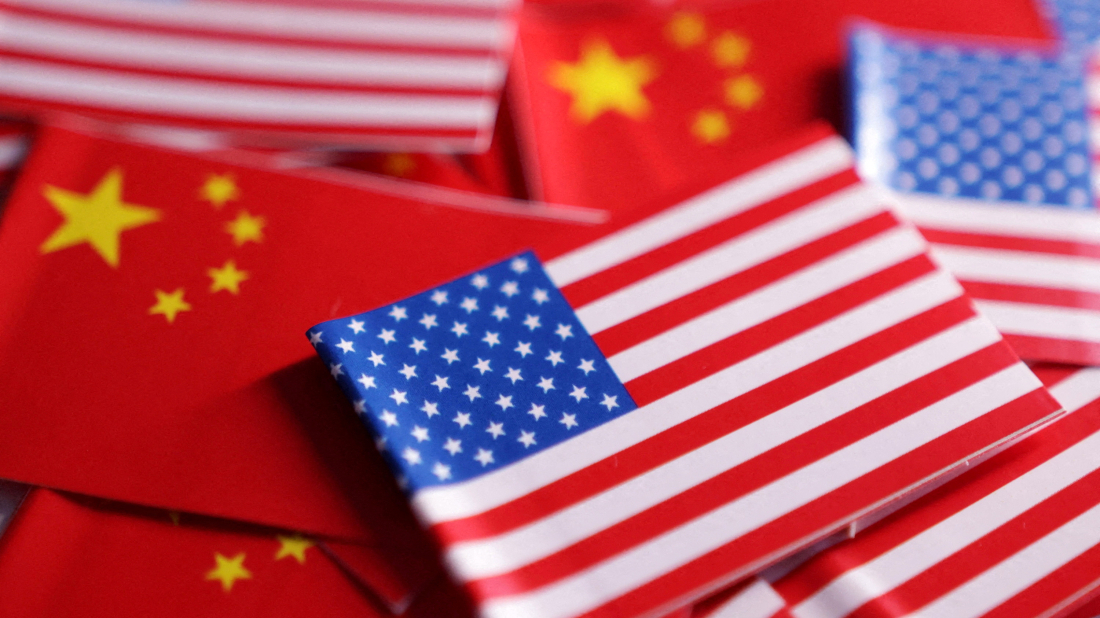Antonio José Seguro wins Portugal presidential runoff against far right
Portugal’s moderate Socialist Antonio José Seguro won the presidency on Sunday, defeating far-right challenger André Ventura in a runoff vote that...

Chinese and US. officials are holding trade talks in Malaysia this week, seeking to stabilise relations between both countries ahead of the highly anticipated Trump - Xi meeting in South Korea next week.
Tensions over tariffs, technology restrictions, and market access remain at the forefront of disputes between the world two largest economies.
The discussions, led by Chinese Vice Premier He Lifeng and U.S. Treasury Secretary Scott Bessent and U.S. Trade Representative Jamieson Greer mark the latest in a series of cautious attempts to rebuild dialogue after years of escalating disputes.
Relations between China and the United States have cooled in recent months, with President Donald Trump’s renewed tariff threats on Chinese goods and China’s retaliatory measures.
Moreover, Washington’s tightening of export controls on semiconductors and clean energy technology has angered Beijing, which accuses the US. of attempting to disrupt global trade through “economic coercion.”
China, in turn, has responded with its own measures, including restrictions on critical minerals used in chipmaking and clean energy production.
The standoff has disrupted global supply chains, pushed manufacturers to diversify into Southeast Asia, and introduced new uncertainty into global markets.
Both governments now face growing domestic and international pressure to find ways to manage their rivalry without triggering further economic instability.
At the Malaysia talks, negotiators are focusing on tariff relief, investment access, and regulatory transparency - areas where limited progress could rebuild some trust.
The US. delegation is pressing China to address industrial subsidies and intellectual property issues, while Beijing is calling for the removal of tariffs that have been in place for nearly six years and greater recognition of its economic development policies.
Analysts note that while both sides remain deeply divided, the fact that the talks are taking place at all signals a shared recognition that complete disengagement is neither realistic nor desirable.
With global growth slowing and geopolitical risks rising, both Beijing and Washington see value in maintaining communication channels, even if expectations for a breakthrough are low.
Now - for both powers, the outcome carries high stakes. The US wants to project strength without damaging its own industries, while China aims to maintain engagement and assert its sovereignty.
The Kuala Lumpur talks set the tone for the upcoming Trump–Xi summit, which could either mark a pause in hostilities or trigger a new wave of tariffs and countermeasures
Storm Leonardo hit Spain and Portugal on Tuesday, forcing more than 11,000 people from their homes, as a man in Portugal died after his car was swept away by floodwaters and a second body was found in Malaga.
Iran would retaliate by striking U.S. military bases across the Middle East if it comes under attack by American forces, Foreign Minister Abbas Araghchi said on Saturday (7 January), stressing that such action should not be seen as targeting the countries hosting those bases.
At least 31 people have been killed and scores wounded in a suicide bombing at a mosque in Pakistan’s capital, Islamabad, during Friday prayers, prompting widespread international condemnation.
U.S. and Ukrainian negotiators have discussed an ambitious goal of reaching a peace agreement between Russia and Ukraine by March, though the timeline is widely viewed as unrealistic due to deep disagreements over territory, according to multiple sources familiar with the talks.
A Japanese city near Mount Fuji has cancelled its annual cherry blossom festival, saying growing numbers of badly behaved tourists are disrupting daily life for residents.
U.S. President Donald Trump has criticised American freestyle skier Hunter Hess after the athlete said he felt conflicted about representing the United States at the Winter Olympics in Italy, sparking a public clash that highlights growing political tensions surrounding the Games.
Portugal’s moderate Socialist Antonio José Seguro won the presidency on Sunday, defeating far-right challenger André Ventura in a runoff vote that confirmed polls pointing to a decisive victory despite weather disruptions and voter fatigue.
India’s trade minister said diversifying energy imports and expanding purchases of advanced technology from the United States would serve New Delhi’s strategic interests, as the two countries move closer to finalising a long-awaited trade agreement.
U.S. and Ukrainian negotiators have discussed an ambitious March goal for Russia and Ukraine to agree on a peace deal, though that timeline is likely to slip given a lack of agreement on the key issue of territory, according to three sources familiar with the matter.
Georgian Prime Minister Irakli Kobakhidze says the country is accelerating investments to enhance its connectivity and transit functions, with key road links set for completion by 2030.
You can download the AnewZ application from Play Store and the App Store.

What is your opinion on this topic?
Leave the first comment